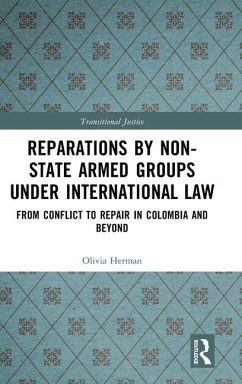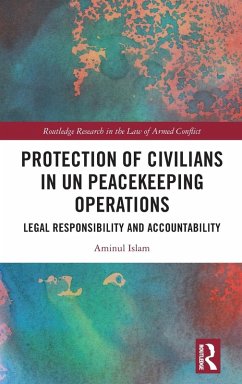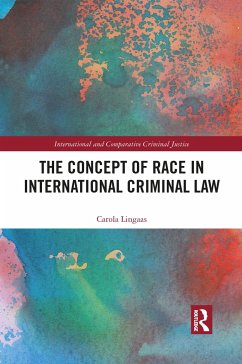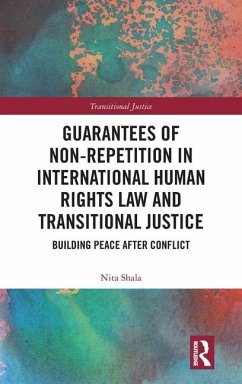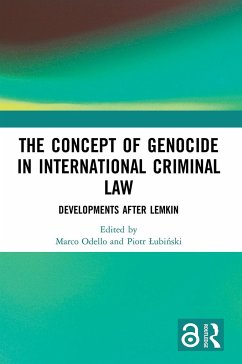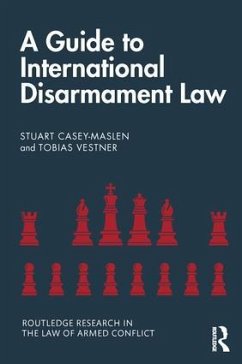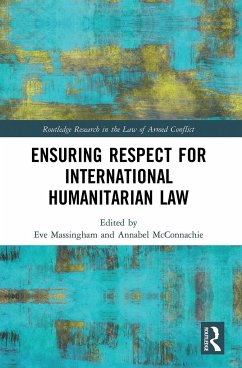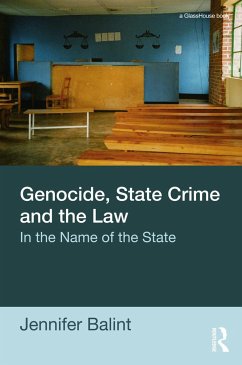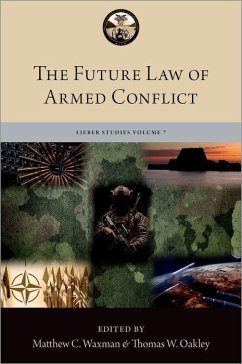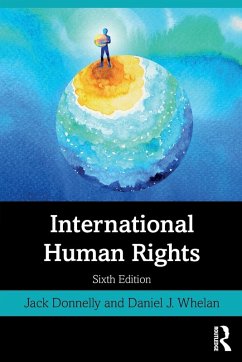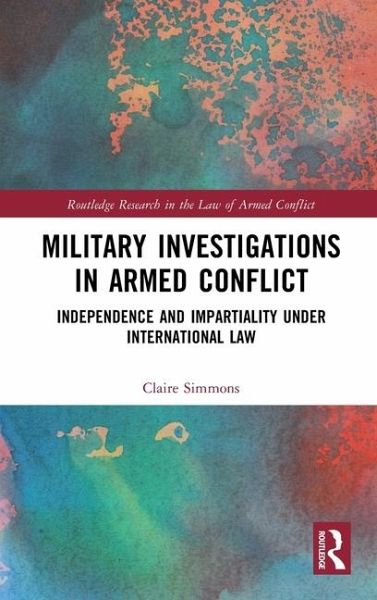
Military Investigations in Armed Conflict
Independence and Impartiality under International Law
Versandkostenfrei!
Versandfertig in 6-10 Tagen
154,99 €
inkl. MwSt.
Weitere Ausgaben:

PAYBACK Punkte
77 °P sammeln!
An allegation is made that a war crime was committed by a soldier during a conflict. Who should investigate the allegation? How should they investigate?This book explores a topic of critical importance in legal and policy discussions surrounding the accountability of military operations in armed conflict, and problematises some presumptions that are often made about the topic. The work provides the international legal framework necessary to address these questions and establishes the precise standards of independence and impartiality as applicable to investigations in armed conflict. It questi...
An allegation is made that a war crime was committed by a soldier during a conflict. Who should investigate the allegation? How should they investigate?
This book explores a topic of critical importance in legal and policy discussions surrounding the accountability of military operations in armed conflict, and problematises some presumptions that are often made about the topic. The work provides the international legal framework necessary to address these questions and establishes the precise standards of independence and impartiality as applicable to investigations in armed conflict. It questions the assumption that the standards of independence and impartiality of investigations should be measured in the same way that we measure these standards for judges, courts, and tribunals. It also explores the ways in which military institutions and culture, as well as the context of armed conflict, may impact on the effectiveness of investigations or the perception of justice by those affected. By demonstrating the precise ways in which military investigations can contribute to or hinder the effectiveness of investigations, the book clarifies States' responsibilities with regard to their accountability efforts for serious violations of international law in armed conflict. The work will be a valuable resource for academics, researchers, and policy-makers working in the areas of international humanitarian law, international human rights law, as well as political science and military ethics.
This book explores a topic of critical importance in legal and policy discussions surrounding the accountability of military operations in armed conflict, and problematises some presumptions that are often made about the topic. The work provides the international legal framework necessary to address these questions and establishes the precise standards of independence and impartiality as applicable to investigations in armed conflict. It questions the assumption that the standards of independence and impartiality of investigations should be measured in the same way that we measure these standards for judges, courts, and tribunals. It also explores the ways in which military institutions and culture, as well as the context of armed conflict, may impact on the effectiveness of investigations or the perception of justice by those affected. By demonstrating the precise ways in which military investigations can contribute to or hinder the effectiveness of investigations, the book clarifies States' responsibilities with regard to their accountability efforts for serious violations of international law in armed conflict. The work will be a valuable resource for academics, researchers, and policy-makers working in the areas of international humanitarian law, international human rights law, as well as political science and military ethics.





